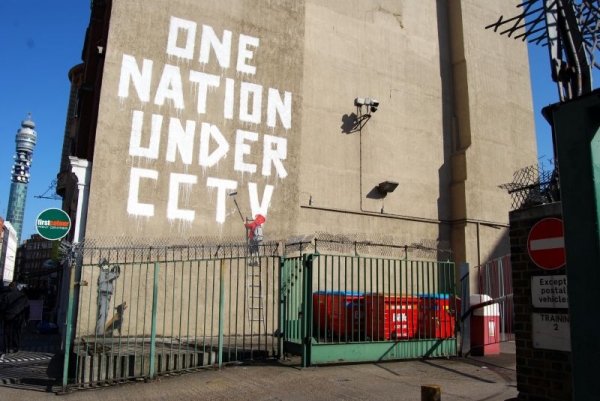What do we mean by culture and why does it matter?

What is culture and why does it matter? To help us answer those questions, Professor John Storey outlines a neo-Gramscian approach to culture. It exposes culture as a site of struggle, equips and empowers us to resist cultural domination, dissolves the barriers between 'high' and 'popular' culture, and thus helps us build the 'new Jerusalem'.
If we want to make the claim that culture matters politically, and be able to illustrate this claim against those who want us to see it as something quite distinct from the political, we need to be clear what we mean by culture. What I propose in this article is a working definition that will provide a way to think politically about all the things we call culture.
To claim that culture matters because it is ultimately political compels us to move beyond all definitions that reduce culture to the arts with a capital A. In other words, it is a definition that rejects the arbitrary – and elitist – distinction between culture and popular culture. The politics of culture involves all of us because it is about the making and circulation of meanings, meanings which affect all of us.
For example: meaning is produced by a play by William Shakespeare, but it is also produced by the latest episode of Coronation Street. If both produce meaning, and the production of meaning is how we are defining culture, it makes no sense to value one as culture and dismiss the other as popular culture. This does not mean that we cannot judge one as better than the other, but it does mean that we cannot rely on arbitrary categories of pre-judgement to make the decision for us. And of course ‘better’ always implies the questions: better for what and better for whom?
We must also reject the idea that the meaning of a play or television drama is the sole property of the text itself. Undoubtedly, they produce meaning but they are also sites for the production of meaning. And these meanings are variable, and often contested by those who consume them. Culture is a 'mental fight', as Blake wrote in 'Jerusalem'. It is a site of struggle between competing ways of making the world meaningful to us. And that cultural struggle therefore becomes a political struggle.
For the commodities produced by the culture industries (books, CDs, films, theatre, television programmes, etc.) to become culture, they have to be consumed and how they are consumed is always, ultimately, a question of politics. To paraphrase Karl Marx, a house only becomes a home when it is inhabited. So in a similar way a novel that no one reads is barely an example of culture. Culture involves both production and consumption. Both text and audience produce meaning: in political terms, a text can help change how we see the world, but so can the meanings we find in it.
There are two conclusions we can draw from a definition of culture as a terrain of shared and contested meanings. First, although the world exists in all its enabling and constraining materiality outside culture, it is only in culture that the world is made meaningful. In other words, signification has a ‘performative effect’; it helps construct the realities it appears only to describe. As Antonio Gramsci once pointed out,
'It is obvious that East and West are arbitrary and conventional (historical) constructions, since every spot on the earth is simultaneously East and West. Japan is probably the Far East not only for the European but also for the American from California and even for the Japanese himself, who, through English political culture might call Egypt the Near East … Yet these references are real, they correspond to real facts, they allow one to travel by land and by sea and to arrive at the predetermined destination.'
In other words, East and West are cultural constructions, directly connected to the imperial power of the West, but they are also forms of signification that have been realized and embedded in social practice. Cultural constructs they may be, but they do designate real geographic locations and guide real human movement and organize real political perceptions of the world. As Gramsci’s example makes clear, meanings inform and organize social action. To argue that culture is best understood as a terrain of shared and contested meanings is not, therefore, a denial that the material world exists in all its constraining and enabling reality, outside signification.
Such a concept of culture does not deny the existence of the materiality of things, but it does insist that materiality is mute: it does not issue its own meanings, it has to be made to mean. Although how something is made meaningful is always enabled and constrained by the materiality of the thing itself, culture is not a property of mere materiality. It is the entanglement of meaning, materiality and social practice, variable meanings in a range of different contexts and social practices. In other words, culture is always social, material and semiotic and always in a direct or indirect relation with the prevailing structures of power.
The second conclusion we can draw from seeing culture as a terrain of shared and contested meanings concerns the potential for struggle over meaning. Given that different meanings can be ascribed, for example, to the same novel or film, the making of meaning is always entangled in what Valentin Volosinov identified as the ‘multiaccentuality of the sign’. Rather than being inscribed with a single meaning, a book or a film can be made to mean different things in different contexts, with different effects of power. Contrast, for example, the interpretation of the film 'The Third Man' in the review elsewhere on this site, with the standard, mainstream interpretation.
Culture, understood as the making of meaning is, therefore, always a potential site of ‘differently oriented social interests’. Those with power often seek to make what is multi-accentual appear as if it could only ever be uni-accentual. In cultural terms, this is the difference between dictatorship and democracy.
The different ways of making something signify are rarely an innocent game of semantics, rather they are a significant part of a political struggle over what might be regarded as ‘normal’ or ‘correct’ – an example of the politics of signification. What are the class politics of Downton Abbey, or the gender politics of Game of Thrones? Is Trident a weapon of mass destruction, the use of which is impossible to envisage, or is it a necessary means of self-defense in an uncertain world? Is austerity a reasonable way to ensure we live within our means or is it a political choice that forces many people to rely on food banks and to become vulnerable to the Victorian diseases of malnutrition, scurvy, scarlet fever, cholera and whooping cough? In each example there is a struggle over meaning, a struggle over who can claim the power and authority to define social reality; to make the world (and the things in it) mean in particular ways and with particular effects of power.
Dominant modes of making the world meaningful are a fundamental aspect of the processes of hegemony. But hegemony is not something imposed that people passively accept. It is always a terrain of struggle between dominant and subordinate ways of understanding the world. While it is true that the forces of incorporation tend to be more powerful than the forces of resistance, this should not lead us to think of the consumption of culture as something always and inevitably passive. It is certainly true that the culture industries are a major site of ideological production, constructing powerful images, descriptions, definitions, frames of reference for understanding the world. However, we should reject the view that the people who consume these productions are ‘cultural dupes’, unable to resist the prevailing ‘common sense’.
People make culture (including popular culture) from the repertoire of commodities supplied by the culture industries. Consumption understood as ‘production in use’ can be empowering to subordinate understandings of the world. And it can be resistant to dominant understandings of the world. But this is not to say that consumption is always empowering and resistant. To deny the passivity of consumption is not to deny that sometimes consumption is passive; to deny that consumers are cultural dupes is not to deny that the culture industries seek to manipulate. But it is to deny that culture, especially popular culture, is little more than a degraded landscape of commercial and ideological manipulation, imposed from above in order to make profit and secure social control.
What is produced and how it is consumed can also challenge the taken-for-granted that always underpins hegemony. A progressive cultural analysis should insist that to decide these matters requires vigilance and attention to the details of the production, distribution and consumption of the commodities from which culture is made. These are not matters that can be decided once and for all (outside the contingencies of history and politics) with an elitist glance and a condescending sneer. Nor can they be read off purely from the moment of production, by locating meaning, pleasure, ideological effect, the probability of incorporation, the possibility of resistance, in, variously, the intention, the means of production or the production itself.
We need also to consider how meaning is generated through consumption, which should be understood as ‘production in use’. Because it is, ultimately, in ‘production in use’ that questions of meaning, pleasure, ideological effect, incorporation or resistance can be (contingently) decided.
This, I suggest, is a more optimistic, empowering approach to defining culture than traditional approaches. It enables us to engage with cultural products on more equal terms, and it enables us to break down the elitist divide between 'high' culture and 'popular' culture. I believe that if contributors to this website apply this approach, a wealth of meanings will be discovered which will help us build 'the new Jerusalem'.
The review of 'The Third Man' mentioned above is on the film section of the arts hub.

John Storey
John Storey is Emeritus Professor of Cultural Studies at the Centre for Research in Media and Cultural Studies, University of Sunderland, UK. He has published extensively in cultural studies, including twelve books. He is currently working on a thirteenth book, Refusing to be Realistic: Cultural Studies and Utopian Desire, to be published with Routledge.
